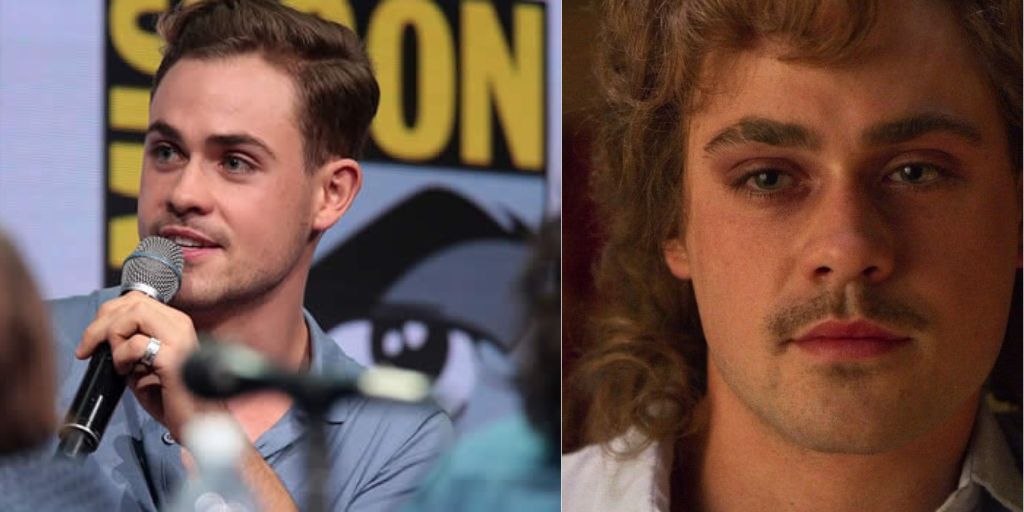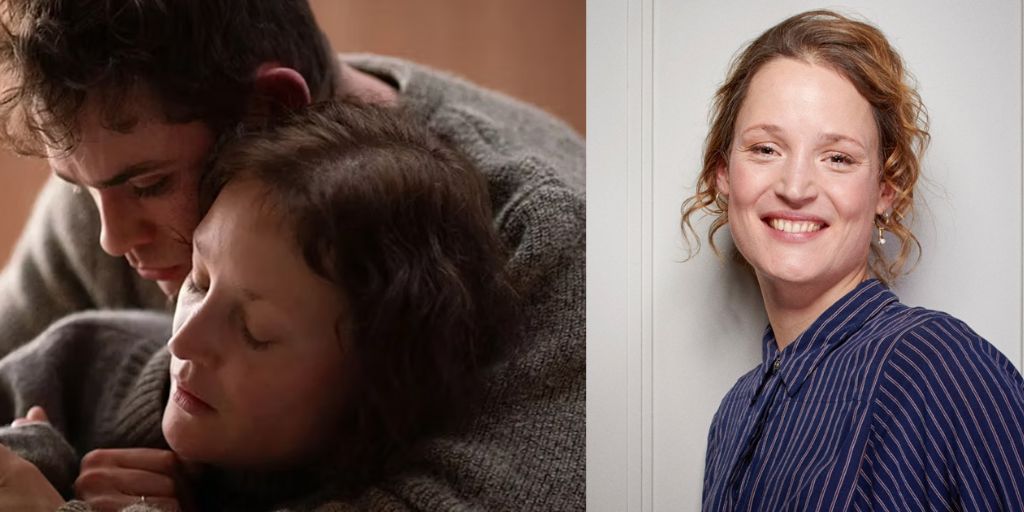As a society, we are very familiar with ghost stories. They are a common part of all cultures worldwide and have been for many years. Ghosts have always sparked fear, curiosity, and sometimes even comfort in people. They have been symbols of hope, evil, and the afterlife, especially through old stories and fables.
When humans began using art to express themselves, ghosts naturally became a part of that. They appeared in paintings, books, poems, and films.
The new film Went Up the Hill, directed by Samuel Van Grinsven, also includes ghosts. It uses a ghost to unite two otherwise disconnected people in a story that takes its time but isn’t without its flaws.
Vicky Krieps (from Phantom Thread) plays Jill, a shy woman grieving the loss of her wife, Elizabeth. She is living in their unsettling, modern house in the isolated countryside of New Zealand.
Suddenly, a young man named Jack (played by Dacre Montgomery from Stranger Things) shows up at her door. Jack says he was invited to the funeral and reveals that he is Elizabeth’s biological son.
This surprises Jill, but she still invites him in and allows him to stay in the house, even though Elizabeth’s suspicious sister, Helen (played by Sarah Peirse), doesn’t like it. As Jill and Jack spend more time in the house, they start to feel Elizabeth’s ghostly presence, and it’s not a peaceful one.
Went Up the Hill Isn’t a Usual Ghost Story
Jack and Jill start waking up in bed together, confused, with no memory of what happened the night before. They soon realize that Elizabeth’s spirit takes control of them when they are unconscious. Her intentions are unclear. Sometimes she controls one of them, and at other times, she controls both at once.
One of the most shocking scenes happens when Elizabeth tries to reconnect with Jill through Jack in an intimate way. She speaks to Jill using Jack’s body, telling her she won’t let him leave so they can be together again. When Jill hesitates, Elizabeth becomes angry and violent.
This scares both Jill and Jack. Jack begins to worry that this side of Elizabeth may be why he was taken away from her as a child. The situation creates fear in both characters, especially when they start to avoid sleep, unsure of how to escape Elizabeth’s control.
Jack and Jill scatter Elizabeth’s ashes in the wild, empty New Zealand countryside, hoping to stop the haunting, but their troubles are far from over. Jack confronts his aunt Helen, searching for answers about his past. This leads to disturbing discoveries about his mother and his childhood.
As emotions rise and tensions increase, Jack and Jill become more and more affected by Elizabeth’s harmful actions. They lose consciousness, fight each other, and face Elizabeth’s full cruelty. The story reaches its peak when everything falls into chaos for Jack and Jill.
Went Up the Hill Has a Weak Script But Strong Acting and Visuals
Went Up the Hill is a movie that succeeds with its eerie atmosphere, thanks largely to Tyson Perkins’ beautiful cinematography and creative use of camera angles. The way he frames the scenes makes viewers feel uneasy, adding to the tension of the story.
The small cast also gives great performances. Krieps and Montgomery have a strange but interesting dynamic as their characters grow closer. Both actors must play two versions of their characters: their regular selves and their “possessed” selves when Elizabeth controls them.

This is a tough challenge, but they pull it off well. Another standout feature is Hanan Townsend’s haunting music score, which adds to the film’s cold and unsettling mood.
While the movie has an interesting idea, it doesn’t always execute it well. Went Up the Hill can be frustratingly slow at times, with some scenes feeling unnecessary and repetitive. The film’s slow pace works against it, and at points, it seems stuck, unsure of how to move the story forward.
In many ways, the film might have been more effective as a short film, where a shorter runtime could have helped with pacing and narrative structure. Despite its flaws, the film still holds up thanks to its strong points.
Samuel Van Grinsven’s eerie ghost story is a chilling concept with committed performances and effective elements, but it feels like it lasts too long.





